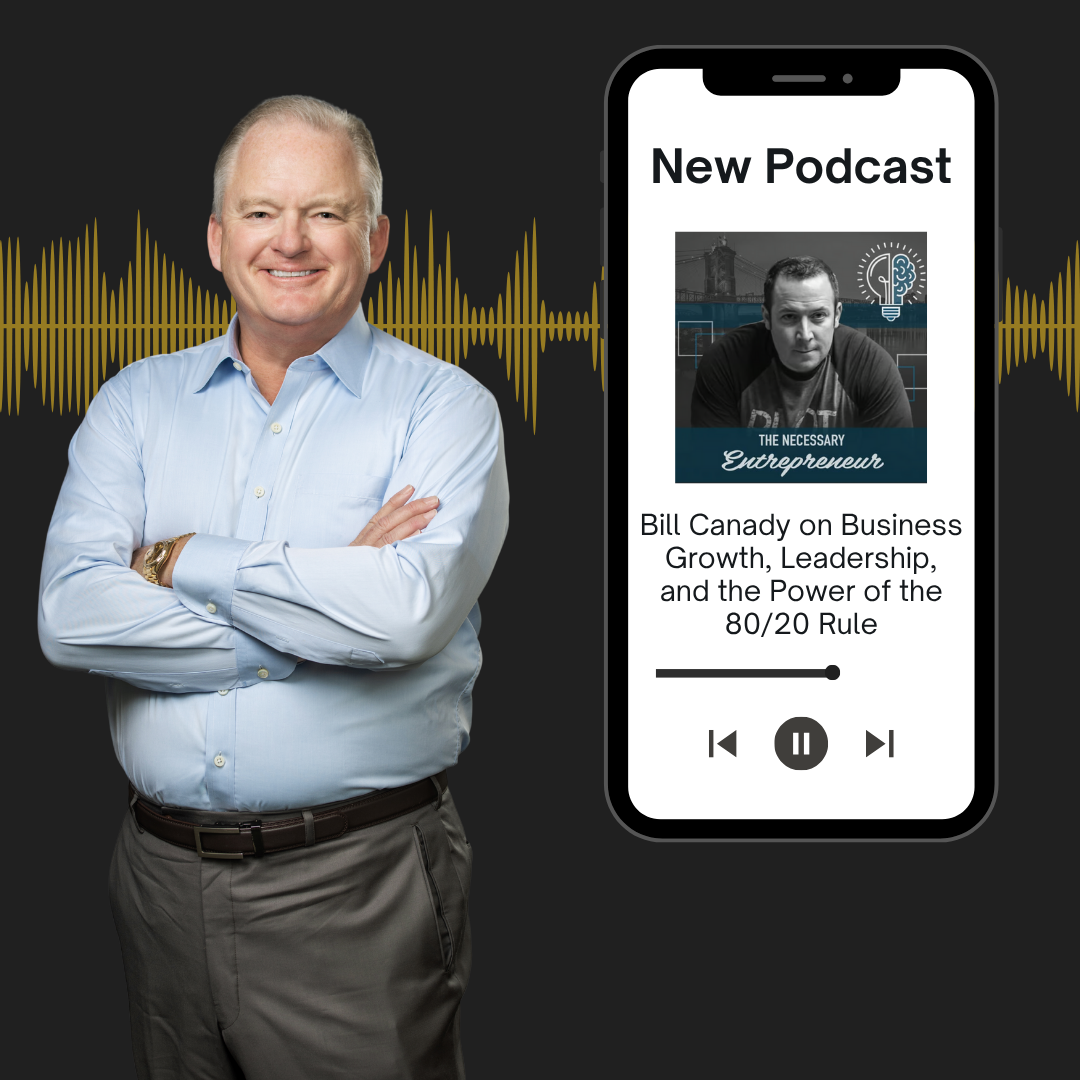No one coming to save you: Bill Canady on the The Necessary Entrepreneur Podcast
by Bill Canady in Blog, Podcast
August 5, 2025

In a candid and insightful episode of The Necessary Entrepreneur podcast, business veteran Bill Canady shared a profound truth that cuts through typical corporate advice: "There is no one coming to save you. You're going to have to save yourself." This isn't just a catchy phrase; it's the core of his philosophy on leadership, resource management, and navigating the often-turbulent waters of business.
Canady, who has spent over 30 years in various business capacities and developed a "profitable growth operating system", emphasizes that this principle is intrinsically linked to the 80/20 rule (Vilfredo Pareto's law). While the concept of focusing on the 20% of efforts that yield 80% of results seems "crazy" simple – "you take the data you figure out where you're making money... you go do more of that and where you're not making money let's do a little less of those pieces" – the execution is where the challenge lies.
The Uncomfortable Truth of Resource Redeployment
The difficulty isn't in understanding the math; it's in the human element. Canady highlights that people "still fight that data". Companies often resist this seemingly obvious shift for several reasons:
• History and Culture: "Our founder did it this way" or "We treat everyone equal here" are common refrains, leading to a reluctance to change established practices or treat customers differently.
• Fear and Insecurity: When resources are taken from less profitable areas to be redeployed, employees "feel unsafe" and wonder, "Do I even have a job?". This resistance is inherent in human nature; "people don't like change" especially if it doesn't align with "the way I want it" or affects their livelihood.
• Complacency in Success: Counter-intuitively, Canady finds it "far easier to lead a company in deep trouble than is one that sees himself as successful." Successful companies are often complacent, saying, "We are working. You don't know what you're talking about. Please leave us alone," making it harder to implement necessary changes.
Canady uses a relatable analogy to explain the "fair but not equal" principle: you'd buy sparkly jewelry and a fancy dinner for a significant other's birthday, but perhaps just a gift card for a sibling. Both are treated fairly, but the investment reflects their importance. Similarly, businesses must identify their "A customers" – those crucial to profitable growth – and disproportionately allocate resources to them, rather than "wasting resources" on smaller, less profitable customers. This means taking resources from the "B customers" because there's "no more hours in the day" or "magic elf" to provide more.
The Leader's Burden and Self-Made Confidence
For Bill Canady, owning this self-reliance starts at the top: "If it's broken, it's my fault. If it's great and successful, they can have all the credit... Failure is an orphan. Be prepared to own the orphan. That's your job." The leader's role is to set the goal, get buy-in from the team on the strategy and reorganization, and be prepared for the reality that some people "just can't get there in time".
His personal journey reflects this self-made confidence. Growing up "really poor", Canady joined the Navy, where he was "broken all the way down" and "built back up," instilling a "kernel of self-confidence". He believes that pushing oneself through uncomfortable situations, even failing, teaches invaluable lessons. He advises: "What really keeps people back, they just don't try". He even shares a personal mistake of delaying the removal of an underperforming, foundational team member for six months, leading to "significant, long-term negative consequences" for the company. His takeaway: "I've never looked back and gone, geez, I wish I'd have gone slower."
Canady's philosophy is a stark reminder that in business, as in life, responsibility ultimately rests with you. You must leverage your existing resources, make tough decisions, and be prepared to push through resistance, even from within your own organization.
To dive deeper into Bill Canady's practical wisdom on profitable growth, leadership, and personal accountability, be sure to listen to the full episode of The Necessary Entrepreneur.
